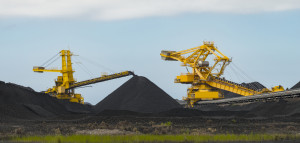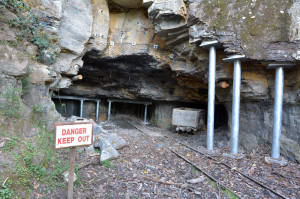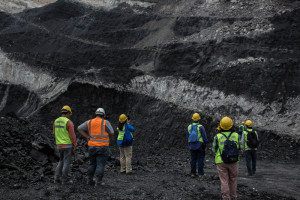 Coal is used as a source for 69% of the energy generated in Australia. The country became the fifth biggest coal producer next to China, India, US and Indonesia and the 2nd biggest exporter in 2013. Coal has accounted for greater than 15% of the country’s total exports for the last five years. The income from exports is considered to be greater or at par with the income from agricultural exports. This has made the coal industry a lucrative area to invest in.
Coal is used as a source for 69% of the energy generated in Australia. The country became the fifth biggest coal producer next to China, India, US and Indonesia and the 2nd biggest exporter in 2013. Coal has accounted for greater than 15% of the country’s total exports for the last five years. The income from exports is considered to be greater or at par with the income from agricultural exports. This has made the coal industry a lucrative area to invest in.
Coal business in Newcastle
The Port of Newcastle is Australia’s biggest coal port. The shipment of coal has reached a record in December last year by hitting over 160 million tonnes. The total number of shipments for 2016 has increased by 2%. This astounding achievement was brought about by the great outpour in the shipments of thermal coal for the production of electricity to China which has decreased output from its own coal mines. However, this resurgence may not last long if China will push through with its policy of stopping its dependence on coal-fired power in order to improve air pollution. The country has already stopped the development of many power stations in January 2017 as part of its initiative to improve air quality.
Despite these changes, Asia remains to be the biggest market for the coal produced in NSW. Countries like Japan, South Korea, Taiwan, Thailand, India, and Malaysia continue to source their coal requirements from those exported by NSW. Countries from other regions like New Zealand, Mexico and Europe also get a small amount of coal from NSW.
Coal will still be a huge player in the Australian market for a long time
 Despite the rise in popularity of alternative energy sources, Prime Minister Malcolm Turnbull predicts that coal will still be a major source of energy worldwide for a long time. Australia should focus on investing in coal technologies that produce lower carbon dioxide emissions during production of coal energy. It is only imperative that energy production is done in a manner that does not harm the environment since Australia is one of the biggest exporters of coal in the world.
Despite the rise in popularity of alternative energy sources, Prime Minister Malcolm Turnbull predicts that coal will still be a major source of energy worldwide for a long time. Australia should focus on investing in coal technologies that produce lower carbon dioxide emissions during production of coal energy. It is only imperative that energy production is done in a manner that does not harm the environment since Australia is one of the biggest exporters of coal in the world.
Developments in infrastructure
Most of the coal being exported are obtained from the Sydney-Gunnedah Basin. NSW prides itself in having outstanding rail and port infrastructure in order to meet the growing demand for coal in different parts of the world. The port of Newcastle has already expanded to have three additional terminals, which are being operated by the Port Waratah Coal Services and Newcastle Coal Infrastructure Group. This expansion has increased the capacity of Newcastle to export coal to about 211 million tonnes of coal each year, which only further strengthens the position of Newcastle as one of the biggest coal export ports worldwide.
Investing in the business of coal mining
The government of NSW makes the decision whether to subject additional coal areas for competitive EOI or tender. Those who are interested may opt to add their company information in a mailing list which will keep them abreast of any new competitive EOI or tender. Investment can also be done through a joint venture, equity investment or a shared purchase for a listed mining company.
Be updated with the trends in the Newcastle coal industry
 If you are planning to get involved in the coal mining business, it is important that you are always updated with the latest news and trends that are happening in the industry. One of the best ways to do so is to get subscribed to coal reports just like the Hunter Valley Coal Report from Newcastle Coal.
If you are planning to get involved in the coal mining business, it is important that you are always updated with the latest news and trends that are happening in the industry. One of the best ways to do so is to get subscribed to coal reports just like the Hunter Valley Coal Report from Newcastle Coal.
A coal report can give you comprehensive information you need about the coal industry such as mine expansions, recent developments, statistical data for production, port conditions, contracts and shipping details. You can also obtain accurate and up-to-date information regarding coal mining companies or authorities. Accurate information is important so that you will be able to make the right decisions when it comes to investing or running a coal business. Get in touch with them now in order to get weekly updates.
